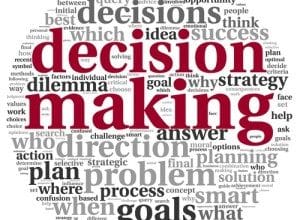Every client account team or campaign will require a content marketing strategist to lead the way, just as every good ship has a captain. These individuals are the definitive experts in formulating, conveying, and executing strategy, as the title of the position suggests. If you’re a company trying to boost its content marketing or social media presence, a strategist is an obvious choice. If you work for a marketing firm, it’s critical that you understand what a content marketing strategist is and what they perform on a daily basis. The CMS, as it is commonly referred to, will be your go-to person for every need, desire, or query you may have. So, what exactly is the role of a content marketing strategist, their skills, and how to become one are all explained in this article
Marketing Strategy
A marketing strategy is a company’s overall plan for reaching out to potential customers and converting them into paying clients for their goods or services. The company’s value proposition, core brand message, statistics on target customer demographics, and other high-level elements are all included in a marketing plan. The “four Ps” of marketing product, pricing, place, and promotion are all covered in a comprehensive marketing strategy.
Overview
A solid marketing strategy should focus on the firm’s value proposition, which tells customers what the company stands for, how it runs, and why they should do business with it.
This gives marketing teams a template to follow for all of the company’s products and services. Walmart (WMT), for example, is well-known as a bargain store with “everyday cheap prices,” and its business operations and marketing activities are built on that concept.
Content marketing strategist
A content marketing strategist is a person who is in charge of developing or collaborating on strategy. Their duty is to assist with the launch of marketing initiatives and the measurement of results. Which may then be used to inform future strategic decisions. Strategists are involved in all aspects of content marketing, as their broad responsibilities suggest.
What is a content marketing strategist?
A content marketing strategist (CMS) is a person who is in charge of developing or collaborating on strategy. Their duty is to assist with the launch of marketing initiatives and the measurement of results, which may then be used to inform future strategic decisions. Strategists are involved in all aspects of content marketing, as their broad responsibilities suggest.
They help:
- Identify business goals and the marketing means to those ends.
- Coordinate with editorial teams on content creation.
- Target audiences, keywords, and best-performing content forms.
- Consult on search engine optimization or deliver analytics.
That’s only a small portion of the work a content strategist is expected to do.
In terms of the role’s softer qualities, a strategist is first and foremost a leader. This is true both inside and externally: an internal strategist must be a self-starter, but an agency liaison must be proactive.
What Does a Content Marketing Strategist Do?
Strategy – it’s essential to content marketing success.
Just like every good ship needs a captain, every client account team or campaign will need a content marketing strategist to lead the way. As the name of the role might indicate, these professionals are the consummate experts in developing, communicating, and executing strategy.
If you’re a business looking to amp up your content marketing efforts or social media presence, a strategist would be the clear hire to make. And if you work with a marketing agency, it’s highly important that you get to know exactly what a content marketing strategist is and what they do on a day-to-day basis. The CMS, as it is sometimes called, will be your point person for every need, want, or question you have.
How to Become a Content Marketing Strategist
You’ll need a bachelor’s degree and a strong background in marketing to work as a content marketing strategist. A bachelor’s degree in marketing and communication, for example, will educate you on how to design a content marketing strategy and will help you develop important marketing abilities, depending on your area of specialization. Many people begin the marketing field, however, with degrees in other fields. The most crucial thing is that your degree program will allow you to expand your writing, critical thinking, problem-solving, and other important soft skills knowledge.
Many people may get their first marketing job with this core set of talents; if you can communicate well and display innovation, you’ll be able to get an entry-level marketing job. Before you’re qualified to move into a specialized role like a content marketing strategist, you’ll typically need to gain on-the-job experience in marketing generalist roles (such as marketing coordinator or a marketing assistant) learning the foundations of content creation, marketing strategy, and campaign management.
Starting your marketing career with the objective of getting a content marketing strategist position is a wonderful approach to drive yourself. Keep yourself focused on the important skills you’ll need to prepare for such a role. And give you something to work toward, even if it takes a few years.
Who Becomes a Content Marketing Strategist?
The most frequent path to becoming a CMS is through a career in digital marketing or a client-facing position (while online skills are key to the job, they can be learned).
These experts enjoy thinking and then putting their ideas into action. As well as watching events unfold and analyzing the results. This is the fundamental framework for conducting a marketing campaign, and each phase will be overseen by a strategist.
Because client relationship management is such an important part of the profession. Anyone interested in becoming a strategist should have prior expertise in it. If not a natural aptitude for leadership, team-building, and simple chit-chatting.
A marketing bachelor’s degree is a benefit, but it’s not necessarily required. If you have strong interpersonal skills, a career as a content marketing strategist could be ideal for you. The appropriate personality is an important part of the strategist puzzle: you must be willing to meet customers halfway and then resourceful enough to find a method to get them across the finish line with a result that everyone is delighted with.
4 Top Skills for Content Strategists
Content marketing strategists must balance creative and strategic obligations while also supporting campaigns with administrative and operational activities. As a result, CMS will require a mix of abilities, knowledge, experience, and intuitive know-how to do the task.
These are some of the skills you’ll need:
#1. Social media
Social media is undoubtedly the most important platform for brand recognition and content marketing. While there are social-specific positions, strategists must be familiar with these platforms. Because they may need to choose the best social media channels to launch a campaign through. CMS may also be responsible for social media posting on occasion; at the very least, CMS will assist in the analysis of social media data in order to direct strategy.
#2. Communication
Strategists should anticipate being in continual contact with their clients throughout the day. Whether via email, phone, or in person, the responsiveness of a marketing strategy is critical, and CMS is mostly responsible for ensuring that it is. Communication skills are essential for this position since they will be needed to complete the strategy. Organize stakeholders, manage team production, and report on business objectives. Informal communication, on the other hand, is equally crucial. CMS must establish relationships with clients or employees, and communication is essential to this process. Networking and event promotion will also put those communication skills to use.
#3. Content creation
It should come as no surprise that a CMS must be familiar with marketing content. Knowing what content would perform well with that demographic or buyer persona is essential when targeting an audience. CMS could be in charge of coming up with ideas for the editorial calendar, proofreading content, or shifting items between stages of production.
#4. Expectation management
A CMS must maintain a steady hand on the account. Clients or higher-ups may be dissatisfied with the results at times. CMS must be actively involved in resolving the problem, whatever it is. Finding common ground or reaching an agreement does not imply becoming a “yes” man or woman. It could also include having open and honest discussions about what is realistically feasible. Goals are set high for a reason, but they may need to be lowered. Internal team conflicts may also require the intervention of a CMS. Who must set an example for everyone else with whom they work?
How Do I Become a Content Marketing Strategist?
It is required that you have at least five years of experience working as a digital content manager, online writer, or content editor before you can become a content strategist. In addition to that, you need to have a bachelor’s degree. The study of English, journalism, communications, marketing, creative writing, technical writing, and information management are all popular choices for undergraduate majors.
What Does a Content Marketing Specialist Do?
They engage in activities across a variety of digital platforms, such as websites, emails, and applications for social media, in order to connect with customers of a brand and cultivate that customer base. Content marketers are essential members of a marketing team since they devise strategies and make changes to content in order to cater to the requirements of their target demographic.
Is Content Strategist a Good Career?
The route to a rewarding and successful career as a content strategist is not always an easy one to navigate. Obtaining buy-in for the material they create is one of the issues that content strategists encounter on a daily basis. The success of an organization is greatly dependent on the quality of its content.
Does Content Marketing Pay Well?
At the CEO level, the median income amounts to $111,851, whilst the median salary for hands-on content marketers is $58,790. Examine the job advertisements on websites such as LinkedIn and Indeed to get more particular information on the salaries that are associated with your role.
Roles of Content Marketing Strategies
To begin, it’s vital that you understand your audience as a content marketing strategy; normally, you’ll work to create a persona (or numerous personas) that represents your target customer or user. Then you’ll think about what kinds of content would appeal to that audience. Blog articles, ebooks, webinars, white papers, podcasts, videos, emails, social media postings, infographics, quizzes, checklists, demos, and more are some of the most prevalent types of content. It’s up to you to find out how to get that material in front of your target audience. As well as how to keep them engaged after they’ve seen it (a process also known as mapping a user journey).
You’ll also be in charge of developing a lot of this material as the content marketing strategist (often in partnership with other team members or external partners. Depending on your skill set and the type of content at hand). This means you’ll need great writing skills, a keen eye for images, and the ability to think of large pictures while also paying attention to details. Content marketers are creative, and can edit their own and others’ work effectively. Also, they are strong project managers, juggling multiple components of various campaigns at the same time. You may also be in charge of arranging content submissions from subject matter experts, delegating projects to others, and working closely with graphic design, video, email marketing, and paid media specialists to complete tasks.
What are some skills or traits an employer will look for in a Content Marketing Strategist?
“It’s definitely best to start as a writer and work your way up,” Allie says, “because you need those basic skills, to begin with.” Even if you’re not a daily writer, you’ll almost certainly have to do some editing. You must be an excellent communicator. You’ll primarily focus on strategy and determining how content fits into the larger marketing puzzle.”
“Understanding where SEO fits in has been another skill I’ve had to master since becoming more of a strategist.” It’s a new language that needs to be learned. Knowing where to put hyperlinks and call-to-action so that offers can fit in the gaps.”
After delivering content, completing the life cycle by analyzing the results of how a particular piece performed is an important part of the job.
“A good strategist should also be fairly analytical,” Jimmy says. They should be at ease with spreadsheets. They should be able to combine data from various sources in a spreadsheet and perform analysis. So that they can see how their content is performing. Also, they should be aware of the implications for the company. They should be aware of the company’s goals and objectives, as well as whether or not the work they’re doing or overseeing is assisting the company in achieving those goals.”
“You may have an analyst on your team who can assist you with those data tables and how to find those insights,” Alex continues, “but how you use those measurements informs the planning.” Analytical methods are a subset of research. It feeds into the information that you’re incorporating into your strategy.”
Is Marketing a Stressful Job?
The findings of the poll, which included more than 400 marketing and advertising executives based in the United States, served as the foundation for the report. The majority of respondents (63%) believe that their jobs are somewhat stressful, while only 7% believe that their jobs are very stressful. Another 27% of people think that the stress level at their job is not too high, and 3% claim that it is not stressful at all.
What is the 10 Rule in Marketing?
The 90/10 rule should be applied in this situation. Invest the majority of your time and energy into perfecting one aspect of your marketing strategy while devoting only ten percent to trying new things. You will expand much more rapidly than you would have in the past, and you will also have more time to experiment with new strategies if you concentrate the majority of your efforts on a single endeavor and carry them out well.
What is the 60-40 Rule in Marketing?
According to the same IPA study, the best balance of brand and demand is a 60/40 split, which consists of 60% branding and 40% direct response, and it applies to both digital and traditional marketing. That is how you may achieve the most impact, which includes increased pricing power, awareness, and sales. Always adhere to the 60-40 rule. Maintaining a healthy equilibrium between supply and demand is the key to achieving optimal results.
Which Marketing Has the Highest Salary?
Here are a few of the highest-paying marketing jobs you can consider;
- Corporate Communications Director
- Content Marketing Director
- Marketing Research Director
- Content Marketing Director
- Director of Email Marketing
- Director of Digital Marketing
- Brand Marketing Manager
- Demand Generation Manager.
FAQ
What are examples of content marketing?
Content marketing includes things like educational articles, e-books, videos, entertainment, and webinars that answer specific questions people have and provide them with something they can’t get elsewhere. It’s the best way to turn your product, no matter how common, into something that is not like everyone else’s
What are the four basic marketing strategies?
The 4 Ps of marketing is place, price, product, and promotion. By carefully integrating all of these marketing strategies into a marketing mix, companies can ensure they have a visible, in-demand product or service that is competitively priced and promoted to their customers.
Does Apple use content marketing?
When it comes down to it, some say Apple’s products are so ubiquitous the company doesn’t even have to do any content marketing. Apple creates devices that help others create content marketing. But just to be safe, it still does, and in the best way: by telling the stories of the people who use its products.






